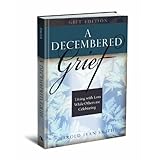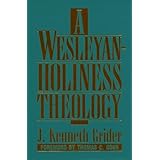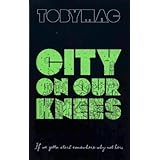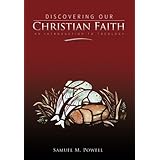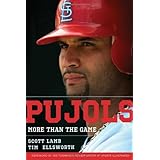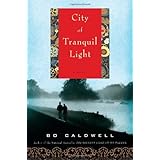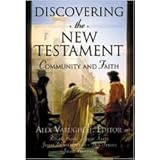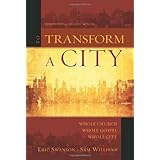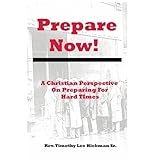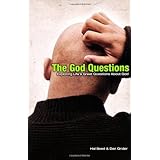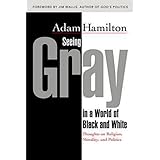
Average Reviews:

(More customer reviews)Are you looking to buy
Seeing Gray in a World of Black and White: Thoughts on Religion, Morality, and Politics? Here is the right place to find the great deals. we can offer
discounts of up to 90% on
Seeing Gray in a World of Black and White: Thoughts on Religion, Morality, and Politics. Check out the link below:
>> Click Here to See Compare Prices and Get the Best Offers
Seeing Gray in a World of Black and White: Thoughts on Religion, Morality, and Politics ReviewIn 1990 Adam Hamilton founded the United Methodist Church of the Resurrection in Leawood, Kansas. After starting with four people, today their weekly attendance numbers about 7500 worshippers. Along the way, Hamilton has written at least a half-dozen books, the most current one urging a "radical center" that moves beyond the tired debates between evangelical conservatives and mainline liberals. Elsewhere Hamilton has advanced the language of "liberal evangelical" or "evangelical liberal."
"This book," he writes, "is my attempt at laying out one Christian's view of a Christianity of the via media or middle way between the extremes" of a Jerry Falwell and John Shelby Spong. That's not to say he argues for a mushy middle or some lowest common denominator. Far from it. The call of Jesus is radical. But because of the transcendence of God and the fallenness of humanity, we should never claim to understand the Jesus Way perfectly. Nor do we have to, for to do so would be a horrible burden.
What Hamilton argues for is not moderation but modesty. He embodies the so-called "peace-saying" of Peter Meiderlin, a Lutheran pastor who had grown tired of the rancor and division caused by doctrinal disputes in the wake of the Protestant Reformation. In the early 1620s he wrote a book under the pen name of Rupert Meldenius, entitled A Prayerful Admonition for Peace to the Theologians of the Augsburg Confession. In it he urged "in essentials unity, in non-essentials liberty, and in all things charity."
Hamilton is a fine example of an articulate pastor who's followed the Wesleyan quadrilateral of Scripture, tradition, reason, and experience. He has listened carefully for the intimations of the Spirit in his own life and in the lives of his parishioners, then incorporated these experiences into his reasoned interpretation of Scripture. He tackles head-on a dozen or so litmus-test issues that have divided Christians-- the Bible, science, evolution, world religions, hell, evil, doubt, ethics, abortion, homosexuality, war and politics. These are short chapters with sparse footnotes and excellent stories. They aren't intended as a substitute for a deeper study of complex issues that Hamilton would robustly recommend. Rather, what we get is the opportunity to look over the shoulder of a gifted pastor as he studies the Scriptures, cares deeply for his people, and celebrates the good news of Jesus.
Questions at the end of the book for each chapter encourage deeper reflection. I would have enjoyed a list of books "for further reading." Readers who expect Hamilton to "solve" the problems he raises will be disappointed, because that's precisely what he doesn't do. In the twenty-three short chapters he makes no pretense of offering a comprehensive analysis of the questions. Rather, he illustrates in a winsome manner how one believer has taken to heart the advice in one of John Wesley's most famous sermons ("Catholic Spirit" from 1755): "Though we cannot think alike, may we not love alike? May we not be of one heart, though we are not of one opinion? Without all doubt, we may. Herein all the children of God may unite, notwithstanding these smaller differences" (231, 236).
Seeing Gray in a World of Black and White: Thoughts on Religion, Morality, and Politics OverviewEveryone agrees that America is polarized, with ever-hardening positions held by people less and less willing to listen to one another. No one agrees on what to do about it. One solution that hasn't yet been tried, say Adam Hamilton, is for thinking persons of faith to model for the rest of the country a richer, more thoughtful conversation on the political, moral, and religious issues that divide us.Hamilton writes: I don't expect you to agree with everything I've written. I expect that in the future even I won't agree with everything I've written here. The point is not to get you to agree with me, but to encourage you to think about what you believe. In the end I will be inviting those of you who find this book resonates with what you feel is true, to join the movement to pursue a middle way between the left and the right --to make your voices heard-- and to model for our nation and for the church, how we can listen, learn, see truth as multi-sided, and love those with whom we disagree.Newsweek:How Would Jesus Choose?By Lisa Miller April 14, 2008Adam Hamilton does not call himself pro-choice. He prefers pro-life with a heavy heart. What that means, as he explains in his new book Seeing Gray in a World of Black and White, is that he believes abortion should be available and legal, that there are instances in which it might be necessary and that those instances should be very rare. Further, he says, the abortion debate has been too hot for too long, and that, as a Christian minister, his job is to try to support people no matter what decision they make. As an evangelical megachurch pastor in Kansas, a man educated at Oral Roberts University, Hamilton speaks carefully, aware that he's staking out a controversial position.Or maybe not. About a third of white evangelicals say that abortion should sometimes or always be legal, according to the Pew Research Center a number that hasn't changed in a decade. In recent election seasons, however, these moderate voices have been drowned out by hard-line shouting on both sides. In the past, an evangelical who might condone abortion in the case of his ailing wife or 14-year-old daughter would never say so in public. Now, the abortion rhetoric has faded somewhat as evangelicals turn their attention to other things: AIDS, the environment, Darfur. In 2004, megapastor Rick Warren announced that abortion was a nonnegotiable for evangelical voters. This year, he's been silent. What's new, then, is not that a pastor like Hamilton would take a softer approach to abortion, but that he would feel comfortable enough to say so from the pulpit and in print.Hamilton wants pro-choice and pro-life advocates to join forces to reduce the number of abortions and he enumerates seven areas where they could find common ground. Let both sides agree that adequate information about birth control can help prevent pregnancy, he says. And let both sides agree that the longer a pregnancy progresses, the more morally problematic an abortion becomes.As for his heavy heart, Hamilton comes by it honestly. Seven years ago he received a letter from a parishioner describing her own teenage pregnancy in the years before Roe, the pressure from her parents to abort and her refusal to do so in spite of the cost. That letter was from his mother.
Want to learn more information about
Seeing Gray in a World of Black and White: Thoughts on Religion, Morality, and Politics?
>> Click Here to See All Customer Reviews & Ratings Now